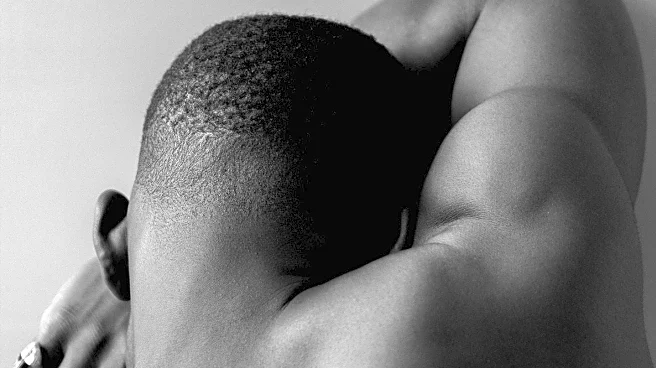What's Happening?
The article explores the emotional journey of a man reflecting on Father’s Day and the impending arrival of his own child. It delves into the complexities of fatherhood, the impact of losing a father, and the challenges of embracing modern masculinity. The author shares personal anecdotes about his father, highlighting the importance of maintaining connections to the past while preparing for the future. He discusses the role of therapy in supporting men through identity shifts and the significance of building healthy habits to cope with the demands of fatherhood. The narrative underscores the evolving understanding of masculinity and the need for fathers to embrace vulnerability and imperfection.
Why It's Important?
This reflection on fatherhood and masculinity is significant as it addresses the broader societal shifts in understanding male roles and identities. It highlights the importance of mental health support for men, particularly in navigating life transitions such as becoming a father. The discussion on embracing vulnerability and imperfection challenges traditional notions of masculinity, promoting a more holistic and inclusive approach to fatherhood. This perspective can influence public policy and societal attitudes towards men's mental health, encouraging more open conversations and support systems for fathers.
What's Next?
As the author prepares for fatherhood, he anticipates learning from his father's mistakes and hopes to offer his child a comprehensive understanding of his own identity. This journey may inspire other men to reflect on their roles and seek support in embracing modern masculinity. The narrative suggests a potential shift in societal expectations of fathers, encouraging them to balance traditional values with contemporary insights. This could lead to increased advocacy for mental health resources and support networks for fathers, fostering a more inclusive environment for men to express their vulnerabilities.
Beyond the Headlines
The article touches on the deeper implications of fatherhood and masculinity, including the intergenerational transmission of values and the impact of grief on personal identity. It raises ethical questions about the societal pressures on men to conform to traditional roles and the importance of redefining these roles to accommodate emotional expression and mental health. The narrative suggests a long-term shift towards a more empathetic and understanding approach to fatherhood, which could influence cultural norms and expectations surrounding masculinity.








